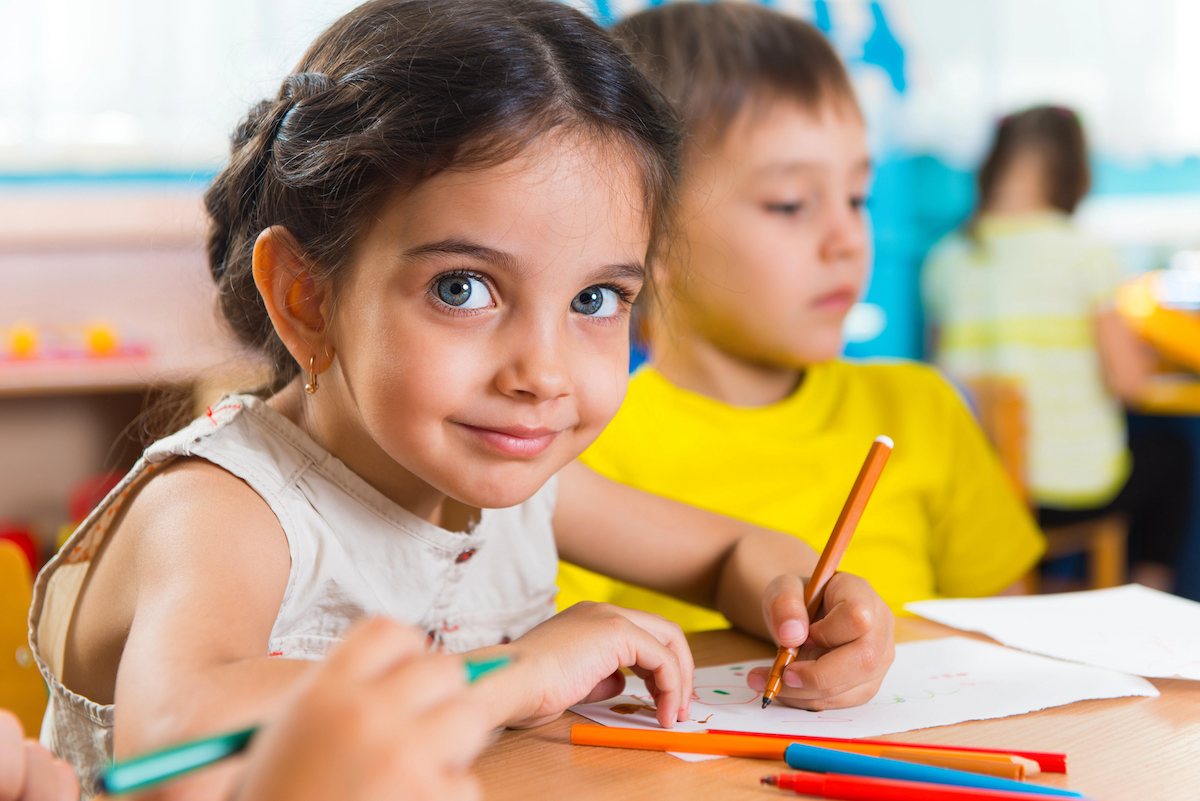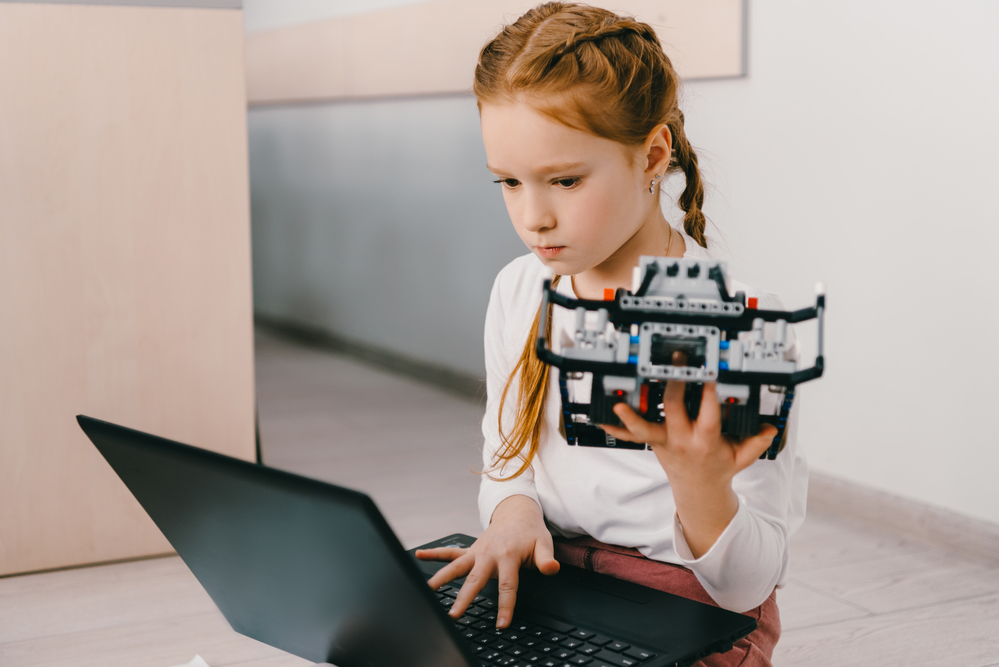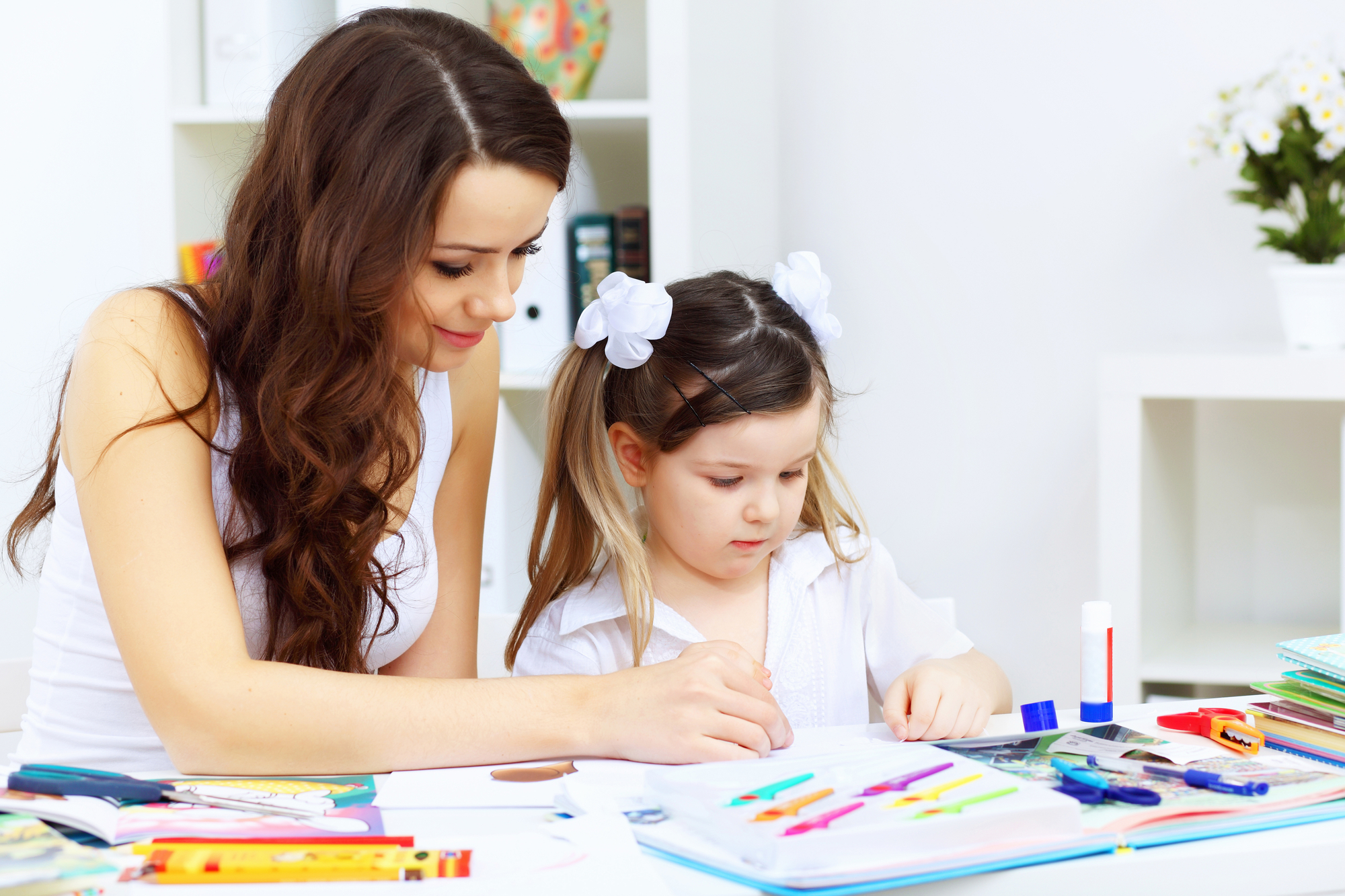The early years are a time of incredible growth, where every new experience shapes who your child is becoming. From solving their first problem independently to comforting a friend, these everyday moments build the foundation for lifelong learning, connection, and confidence.
That’s the beauty of early learning and care settings. Whether it’s a kindergarten classroom filled with laughter and paint-splattered smocks, or a childcare room buzzing with block towers and storytime, these environments are intentionally designed to nurture the whole child. Beyond ABCs and 123s, children are building critical life skills that help them thrive—not just now, but well into their future.
Here are eight of the most essential skills your child can begin to develop in high-quality early learning environments.
1. Confidence: Learning to Trust Their Own Abilities
Confidence doesn’t come from being the best—it grows from being encouraged to try, try again. In early learning settings, children are supported to explore new tasks at their own pace. Whether they’re mastering how to pour water into a cup without spilling or navigating a tricky climbing frame, these small but meaningful wins help them feel capable and proud.
Educators create play-based experiences that spark curiosity and challenge children just enough to stretch their abilities. As they experiment, investigate, and solve everyday problems—like figuring out how to share the last yellow crayon—they’re not just learning new skills. They’re developing a sense of independence, agency, and inner belief: I can do this.
Parent tip: Celebrate effort, not just outcomes. When your child perseveres through a tricky task, acknowledge the process. “You didn’t give up—even when it got hard. That’s real confidence.”
2. Relationship-Building: Connecting Beyond the Family Circle
Before children even learn to read, they’re learning how to relate. Early learning and care settings are often the first place children begin forming relationships beyond the family. These moments are significant. They learn how to say hello to someone new, wait for their turn, and comfort a friend who’s upset.
Through intentional group experiences—like shared storytelling, imaginative play, and circle time—children discover how social groups work. They develop the ability to start conversations, listen actively, and understand others’ perspectives.
It’s in these early friendships and educator-child relationships that children begin to realise: I belong here. I matter. I’m part of something.
Educator insight: “One of the most important gifts we give children is the language of connection,” says Carla M., an early childhood educator. “We model how to resolve conflict, show care, and ask for help—skills they’ll use for the rest of their lives.”
3. Participation and Contribution: Becoming Active Members of a Community
Children thrive when they feel seen, heard, and valued. In early learning environments, they’re not just observers—they’re active participants. Whether it’s setting the table for snack time, leading a morning song, or helping clean up after messy play, children are encouraged to contribute to the daily rhythm of their setting.
These simple acts foster a deep sense of belonging and purpose. Children begin to understand that their actions matter—that they’re part of a shared space where everyone plays a role. Being acknowledged by peers and educators reinforces their self-worth and helps them grow into socially aware, community-minded individuals.
What this teaches: Beyond building independence, these moments teach empathy, accountability, and how to be a team player—skills that are just as important as literacy and numeracy when it comes to school readiness.
4. Problem-Solving: Building Brains That Think Creatively and Critically
Problem-solving is more than a skill—it’s a mindset. In quality early learning programs, children are given the space to make choices, test their ideas, and revise their thinking when things don’t go to plan.
This might look like figuring out how to balance blocks so their tower doesn’t fall, or navigating a disagreement over who had the toy first. These situations are rich in opportunity. They help children develop cognitive flexibility, persistence, and an understanding of cause and effect.
Educators carefully design play experiences that embed pre-numeracy concepts such as sequencing, pattern recognition, and logic. And because children learn best by doing, these skills are learned in context, not just through worksheets or instructions, but through real-life trial and error.
In action: “I wonder what would happen if we turned the puzzle piece the other way?” That simple question can unlock an entire world of exploration, critical thinking, and discovery.
5. Language and Communication: Finding Their Voice in a World of Words
Children are born communicators, long before they speak in full sentences. Early learning and care environments are intentionally rich with conversation, music, stories, and shared dialogue—because language isn’t just about talking; it’s about connection, comprehension, and curiosity.
In these settings, children are constantly exposed to new vocabulary, sentence structures, and storytelling traditions. Educators model expressive language, ask open-ended questions, and create space for children to express their ideas, emotions, and needs.
Language development is foundational to future literacy, but it also plays a vital role in shaping how children think, regulate emotions, and interact socially. Giving children the tools to communicate effectively empowers them to be heard—and to listen meaningfully in return.
Why it matters: When a child realises they can explain what they feel, ask thoughtful questions, or describe their latest invention in the sandpit, they’re not just building language—they’re learning to engage with the world in powerful, purposeful ways.
6. Emotional Regulation: Understanding and Managing Feelings
Around the age of two or three, children begin to notice that their feelings can change and that how they respond impacts the people around them. Early learning settings provide a safe space for children to explore this complex journey, moving from simply experiencing emotions to learning how to manage them.
With gentle guidance from educators, children start to recognise connections between their actions and consequences. For example, they learn that shouting when upset might make others uncomfortable, but using words to express frustration helps solve problems. These early lessons in self-control and reflection are empowering; children begin to see themselves as capable of influencing their own emotional worlds.
A milestone moment: When a child chooses to take deep breaths instead of throwing a tantrum, they’re not just calming down—they’re discovering their own emotional power.
7. Empathy: Stepping Into Another’s Shoes
Empathy, the ability to understand and share the feelings of others, is a complex emotional skill that starts to emerge around age two. Through pretend play and social interactions in early learning settings, children practice seeing the world from someone else’s perspective.
Role-playing games—whether caring for a “baby doll” or acting out stories—invite children to imagine how others might feel. Educators nurture this by encouraging conversations about feelings and guiding children to use empathetic language.
This growing emotional awareness lays the foundation for meaningful social connections, teaching children that kindness and understanding enrich relationships and community life.
Educator note: “Helping children put words to feelings builds their emotional vocabulary—and their ability to connect deeply with others,” says early childhood expert Rachel L.
8. Resilience: Growing Courage Through Challenges
Resilience is about more than bouncing back; it’s about learning to face uncertainty, discomfort, and setbacks with determination and optimism. Early learning environments offer countless opportunities for children to step outside their comfort zones—whether trying a new activity, making a new friend, or solving a difficult problem.
These experiences teach children to manage vulnerability and develop inner strength. They learn that it’s okay to feel scared or unsure, and that courage often means continuing forward despite those feelings.
Educators support this by celebrating effort, encouraging independence, and creating a community where children feel safe to take risks and learn from mistakes.
A powerful lesson: Resilience isn’t just about toughening up—it’s about growing into a confident, adaptable, and hopeful person who knows they can face whatever comes next.
The Joy of Childhood, Every Step of the Way
At the heart of every early learning setting is the joyful, unstructured playtime where children laugh, create, explore, and imagine. These moments of freedom aren’t just fun—they’re vital. They’re where skills are practised, relationships are formed, and lifelong passions are sparked.
In these nurturing environments, children don’t just prepare for school—they begin a journey of discovery that will shape their character and their future.









